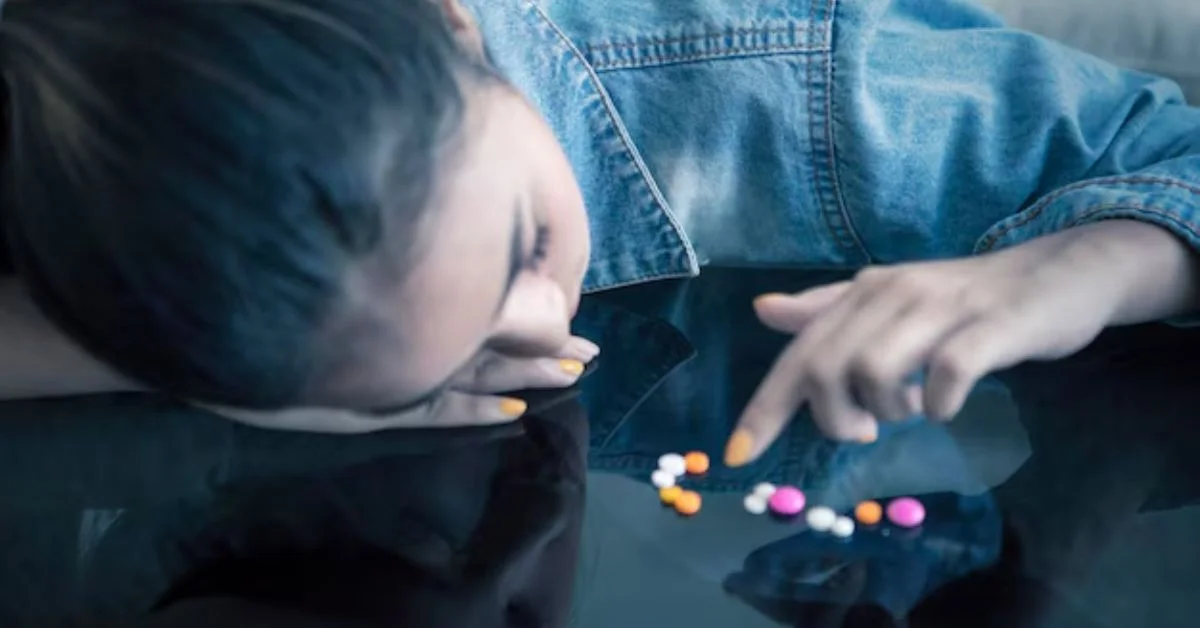Depression can feel like an endless tunnel, with no light in sight. For many, medication like Cymbalta offers a glimmer of hope. But what happens when that hope turns into despair? The phrase “Cymbalta ruined my life” is one echoed by countless individuals who have experienced both the highs and lows of this powerful drug. In this post, I will share my personal journey through depression and the complex relationship I developed with Cymbalta—shedding light on its impact, side effects, and how to navigate recovery. Join me as we explore the delicate balance between healing and heartache.
Understanding Cymbalta
Cymbalta ruined my life, also known as duloxetine, is a prescription medication primarily used to treat depression and anxiety. It belongs to the class of drugs called serotonin-norepinephrine reuptake inhibitors (SNRIs). Its ability to balance neurotransmitters in the brain makes it effective for many struggling with mental health disorders.
Beyond its use for depression, Cymbalta can help alleviate chronic pain conditions like fibromyalgia and diabetic neuropathy. This multifaceted approach offers hope for those facing various challenges but comes with significant considerations.
What is Cymbalta?
Cymbalta, also known as duloxetine, is a prescription medication primarily used to treat major depressive disorder and generalized anxiety disorder. It belongs to a class of drugs called serotonin-norepinephrine reuptake inhibitors (SNRIs).
By balancing neurotransmitters in the brain, Cymbalta aims to improve mood and reduce feelings of anxiety. Many people find it helps them regain control over their daily lives, but experiences can vary widely from person to person.
How Is Cymbalta Used?
Cymbalta is primarily prescribed to treat major depressive disorder and generalized anxiety disorder. It can also help manage chronic pain conditions, such as fibromyalgia and diabetic neuropathic pain. The medication works by balancing chemicals in the brain that affect mood.
Typically taken once daily, Cymbalta ruined my life can be consumed with or without food. It’s essential for patients to follow their physician’s instructions carefully regarding dosage. Regular check-ins with healthcare providers ensure the treatment remains effective and safe throughout its course.
How Does Cymbalta Work in the Brain and Body?
Cymbalta, known generically as duloxetine, acts primarily on neurotransmitters in the brain. It inhibits the reuptake of serotonin and norepinephrine, enhancing mood regulation and alleviating anxiety. This dual action helps restore balance in brain chemistry.
In addition to its effects on mood, Cymbalta also targets pain pathways in the body. By modulating how pain signals are processed, it can provide relief for those struggling with chronic pain conditions alongside depression or anxiety disorders.
Impact of Cymbalta
Many individuals share their experiences with Cymbalta, often citing profound changes in their lives. While some find relief from depression and anxiety, others express frustration and disappointment, claiming that “Cymbalta ruined my life.” This duality highlights the medication’s varying effectiveness across different people.
For many, the side effects can be overwhelming. Weight gain, emotional numbness, or fatigue may overshadow any potential benefits. These challenges often lead to a complicated relationship with the drug and raise questions about its overall impact on mental health.
Why Do People Say “Cymbalta Ruined My Life?”
Many individuals express that “Cymbalta ruined my life” due to the profound impact it can have on their mental and physical health. For some, this medication doesn’t deliver the expected relief from depression or anxiety, leading to feelings of hopelessness.
Additionally, side effects such as weight gain, fatigue, and emotional numbness can exacerbate their conditions. When prescribed without proper monitoring or guidance, Cymbalta ruined my life may create more challenges than solutions in a person’s journey toward wellness.
The Side Effects of Cymbalta
Cymbalta can lead to a variety of side effects. Many users report experiencing dizziness, dry mouth, and fatigue. These symptoms can impact daily life significantly, making it challenging to maintain routines or enjoy activities.
Some individuals may also face emotional changes, such as increased anxiety or mood swings. It’s crucial to monitor your reactions closely while taking Cymbalta and communicate any concerns with your healthcare provider immediately. Understanding these potential side effects is vital for managing your mental health journey effectively.
Precautions of Taking Cymbalta
Before starting Cymbalta, it’s essential to inform your doctor about any pre-existing health conditions. This medication can affect those with liver or kidney issues, and individuals with a history of bipolar disorder should be cautious.
Monitoring for unusual changes in mood or behavior is crucial when taking Cymbalta. It’s important not to suddenly stop the medication without consulting a healthcare professional, as this can lead to withdrawal symptoms and other complications that could impact your well-being.
Cymbalta Withdrawal Symptoms
Cymbalta withdrawal can be challenging for many individuals. Symptoms may include dizziness, nausea, irritability, and mood swings. These effects can vary in intensity depending on the duration of use and dosage.
Some people also report brain zaps or electric shock sensations. Fatigue and sleep disturbances are common as well. Understanding these symptoms is crucial for anyone considering discontinuation or transitioning off Cymbalta ruined my life to manage expectations effectively during this process.
Coping and Recovery
Recovering from the effects of Cymbalta ruined my life can be daunting. It’s essential to acknowledge your feelings and understand that healing takes time. Surround yourself with supportive friends or family who can lend an empathetic ear.
Developing a routine can also help restore a sense of normalcy. Engage in activities you once enjoyed, even if they feel challenging at first. Mindfulness techniques like meditation or journaling may provide relief and clarity during this transition period. Focus on small victories as you navigate your journey back to well-being.
How To Recover If Cymbalta Ruined Your Life
Recovering from the impact of Cymbalta can feel overwhelming. Start by reaching out to a mental health professional who understands your experiences. They can help tailor a recovery plan that suits you.
Engage in self-care practices like journaling, meditation, or gentle exercise. Surround yourself with supportive friends and family who encourage healing. Embracing small steps each day will empower you on this journey toward reclaiming your life and well-being.
Strategies to Cope with Cymbalta Withdrawal Symptoms
Coping with Cymbalta withdrawal symptoms requires a proactive approach. Gradually tapering your dosage under medical supervision can help ease the transition. Staying hydrated and maintaining a balanced diet also support overall wellness during this time.
Engaging in regular physical activity is beneficial too. Exercise releases endorphins, which can improve mood and reduce anxiety. Additionally, practicing mindfulness techniques such as meditation or yoga may assist in managing stress levels effectively while navigating withdrawal challenges.
Can Cymbalta’s Negative Side-Effects Be Reversed?
Cymbalta can lead to various negative side effects, leaving many wondering if these impacts are reversible. While some individuals may notice improvements after stopping the medication, others might experience lingering issues.
It’s crucial to recognize that everyone’s body reacts differently. Consulting a healthcare professional for personalized guidance is essential in navigating this journey and finding effective solutions for any ongoing symptoms you may face. With the right support, recovery is possible.
Steps to Recover After Cymbalta Ruined Your Life
Recovery begins with acknowledging the impact Cymbalta ruined my life has had on your life. This step can be incredibly liberating. Reflecting on experiences allows you to understand what went wrong and how it affected your daily routines.
Next, consider seeking professional help. Therapists and support groups provide a safe space for sharing feelings and healing together. They can guide you through tailored strategies that address both emotional recovery and managing any lingering symptoms from the medication’s effects.
Seeking Help and Support
Finding help for mental health disorders is crucial. Many people struggle with feelings of isolation and despair, but support exists. Reach out to professionals who understand the complexities of medications like Cymbalta ruined my life.
Alternative medications may also provide relief if Cymbalta ruined my life hasn’t worked for you. Exploring different options can lead to better outcomes. Personalized support services offer guidance tailored to your unique needs, helping you navigate this challenging journey toward recovery and wellness without judgment or stigma.
Find Help for Mental Health Disorders
Seeking help for mental health disorders can feel daunting, but it’s a crucial step toward recovery. Start by talking to your primary care physician or a mental health professional who understands the complexities of conditions like depression and anxiety.
Support groups also offer valuable insights and shared experiences. Connecting with others facing similar challenges can reduce feelings of isolation. Remember, you’re not alone in this journey; there are resources available to guide you through each step.
Alternative Medications for Cymbalta
If Cymbalta hasn’t worked for you, there are alternative medications to consider. Options like serotonin-norepinephrine reuptake inhibitors (SNRIs) and selective serotonin reuptake inhibitors (SSRIs) may provide relief without the same side effects.
Additionally, some individuals find success with natural remedies such as St. John’s Wort or omega-3 fatty acids. Always discuss these alternatives with your healthcare provider to ensure they fit into your treatment plan safely and effectively.
Personalized Support Services
Navigating the complexities of mental health can be daunting, especially when dealing with medications like Cymbalta. Personalized support services offer tailored assistance that addresses individual needs and challenges. These programs often include therapy, counseling, and peer support groups.
Finding a professional who understands your journey is crucial. They can help you manage symptoms effectively while providing guidance through the recovery process. Support doesn’t have to come from just one source; combining different types of care could enhance your healing experience.
Exploring these options empowers you on your path to well-being. Remember, you’re not alone in this struggle—support is available! Seeking help may lead you toward a brighter future where life feels manageable again.









